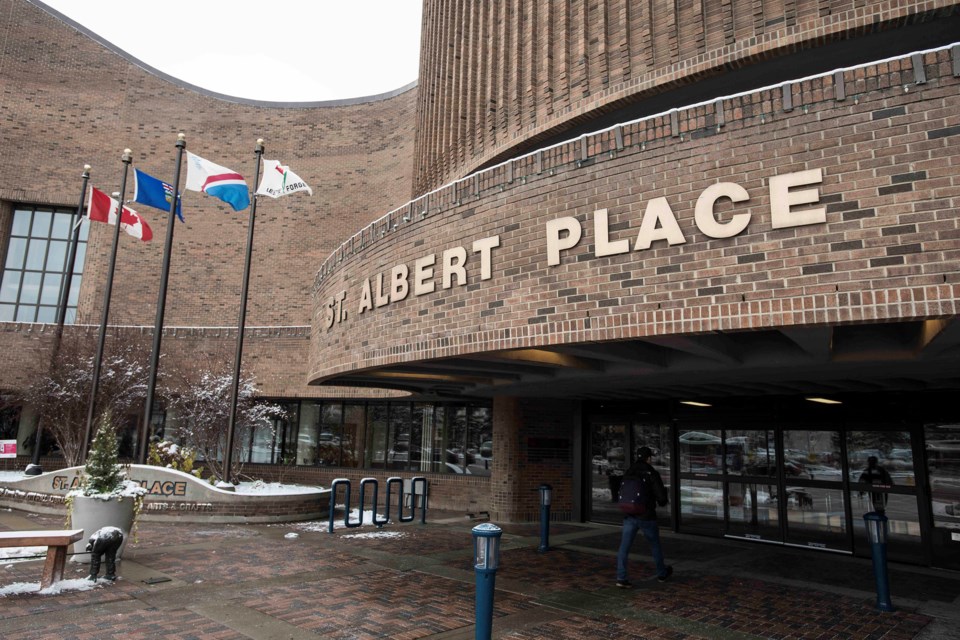St. Albert residents will only pay a few dollars more on their tax bills this year, after a decrease to the province's education tax whittled down the expected residential-tax increase to almost zero.
St. Albert city council unanimously voted May 17 to secure a 0.1-per-cent tax increase for 2021, meaning the average owner of a $435,000 home will pay $3 more in 2021.
That's inclusive of an automatic 1.5-per-cent tax increase to help maintain city infrastructure.
Council approved a 0.7-per-cent tax hike last December as part of budget discussions to maintain service levels not directly impacted by COVID-19. However, the approved hike always gets adjusted in May once the city finishes property assessments, and once the province sets its education tax rate. The education tax went down this year, while a levy for Homeland Housing went up, bringing the overall tax increase to 0.1 per cent.
Mayor Cathy Heron noted education taxes are collected by the municipality for the province, and if those rates go up, so do the city's tax rates. The education levy alone makes up 23 per cent of tax bills.
"I think there's always this fear that education property taxes will go up and then overall municipal property taxes go up, and then (residents) blame mayor and council, but this example (where it) is actually lowering our tax (increase) to 0.1 (per cent)," she said.
Businesses will see taxes increase by about 0.5 per cent, meaning commercial property owners would see a $78 average increase on their bills for a property worth $950,000.
While the values of residential and non-residential properties dropped by 1.2 per cent and 5.2 per cent respectively last year, city appraiser Stephen Banner said St. Albert's taxable assessment base stayed pretty stable at $12.5 billion in 2020. New construction and land development – particularly multi-family residential builds – grew assessments by about 1.8 per cent, or $225 million.
Coun. Jacquie Hansen recognized the growth of multi-family residential in the city.
"It just makes me feel good about the decisions we've made around the diversity of housing," she said, referencing changes made by council to the city's land use bylaw.
In an interview, Coun. Sheena Hughes said council has had an eight-year streak of keeping tax increases low, but the next council will have some real challenges ahead with some big projects coming up on the horizon.
The costs for the city's new Fire Hall #4 haven't been realized yet through borrowing $26.5 million; the twinning of Ray Gibbon Drive continues; and the city will have to factor in what to do with its new recreation lands in the north.
"You're going to have to make decisions around either agreeing to higher tax increases, or making some more tough decisions about how we're going to be more efficient," Hughes said. "Considering the times that we are currently facing, adding increased pressure to residents for taxes is something that we need to make sure that we are sensitive to avoid."
At the start of this year, the city's electrical franchise fee increased by 2.5 per cent, bringing the fee up to 10 per cent. That cost appears on residents' utility bills and helps to subsidize tax increases.




